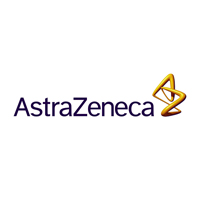AstraZeneca Plc (LON:AZN) announced the agreement to divest the prescription medicine rights to Nexium (esomeprazole) in Europe, as well as the global rights (excluding the US and Japan) to Vimovo (naproxen/esomeprazole) to Grünenthal. The medicines are outside AstraZeneca’s three main therapy areas of Oncology, Cardiovascular, Renal & Metabolism and Respiratory. Nexium has lost compound patent protection in the majority of global markets. Vimovo is patent protected in most European markets until 2025.
Nexium, a proton pump inhibitor developed by AstraZeneca, helps to reduce the amount of acid produced by the stomach in patients with gastrointestinal reflux conditions and ulcers. It has a number of indications, including the prevention and treatment of gastric ulcers induced by pain-relieving non-steroidal anti-inflammatory drugs (NSAIDs).
Vimovo is a modified-release fixed-dose combination tablet of naproxen, a pain-relieving NSAID and esomeprazole, the active ingredient in Nexium, for the treatment of various inflammatory diseases, including osteoarthritis, rheumatoid arthritis and ankylosing spondylitis in patients at risk of developing NSAID-associated gastric ulcers and/or duodenal ulcers.
Mark Mallon, Executive Vice President, Global Product & Portfolio Strategy said: “The divestment agreements allow us to realise value from our successful medicines while redeploying our resources on developing innovative medicines for patients across our three main therapy areas, which we expect to drive growth for AstraZeneca. Grünenthal is a science-based pharmaceutical company specialised in innovative pain management and related therapies. Its expertise and distribution networks will help expand the commercial potential of both Nexium and Vimovo, helping to reach many patients who could benefit.”
Financial considerations
The divestment is expected to complete in 2018. For Nexium, Grünenthal will make an upfront payment of $700 million upon completion. AstraZeneca may also receive future milestones and sales-related payments of up to $90 million. For Vimovo, Grünenthal will make an upfront payment of $115 million on completion. AstraZeneca may also receive future milestones and sales-related payments of up to $17 million. Upfront and milestone payments will be reported as Other Operating Income in the Company’s financial statements.
AstraZeneca will continue to commercialise Nexium in all markets outside Europe, where the Company retains the rights. On completion of the agreements, AstraZeneca will not retain any ownership rights to Vimovo globally, or to Nexium in Europe. Nexium sales in Europe in H1 2018 were $121million; Vimovo global sales excluding the US and Japan in the same period were $37million. AstraZeneca will continue to manufacture and supply Nexium under a long-term supply agreement.
About Nexium
Nexium (esomeprazole) is used to treat gastroesophageal reflux disease, ulcers, and Zollinger-Ellison syndrome. It is also used for the prevention and treatment of gastric ulcers induced by pain-relieving NSAIDs. Nexium is available in several formulations (Nexium gastro-resistant granules for oral suspension, Nexium gastro-resistant Multi-Unit Pellet System (Nexium MUPS™) tablets, and Nexium injection/infusion) with varying approved indications. The rights to over-the-counter Nexium were externalised to Pfizer Consumer Health in 2012.
About Vimovo
Vimovo (naproxen/esomeprazole) modified-release tablet is a fixed-dose combination of naproxen, a pain-relieving NSAID and esomeprazole, the active ingredient in Nexium. It is indicated for the symptomatic treatment of osteoarthritis, rheumatoid arthritis and ankylosing spondylitis in patients who are at risk of developing NSAID-associated gastric ulcers and/or duodenal ulcers and where treatment with lower doses of naproxen or of other NSAIDs is not considered sufficient. The rights to Vimovo in the United States were externalised to Horizon Pharma in 2013.
About AstraZeneca
AstraZeneca is a global, science-led biopharmaceutical company that focuses on the discovery, development and commercialisation of prescription medicines, primarily for the treatment of diseases in three therapy areas – Oncology, Cardiovascular, Renal & Metabolism and Respiratory. AstraZeneca operates in over 100 countries and its innovative medicines are used by millions of patients worldwide.








































